Side Effects Of Ginger: 9 Major Risks & Safety Tips
This spice may be common in every household, but the knowledge of the downsides of consuming it is not.
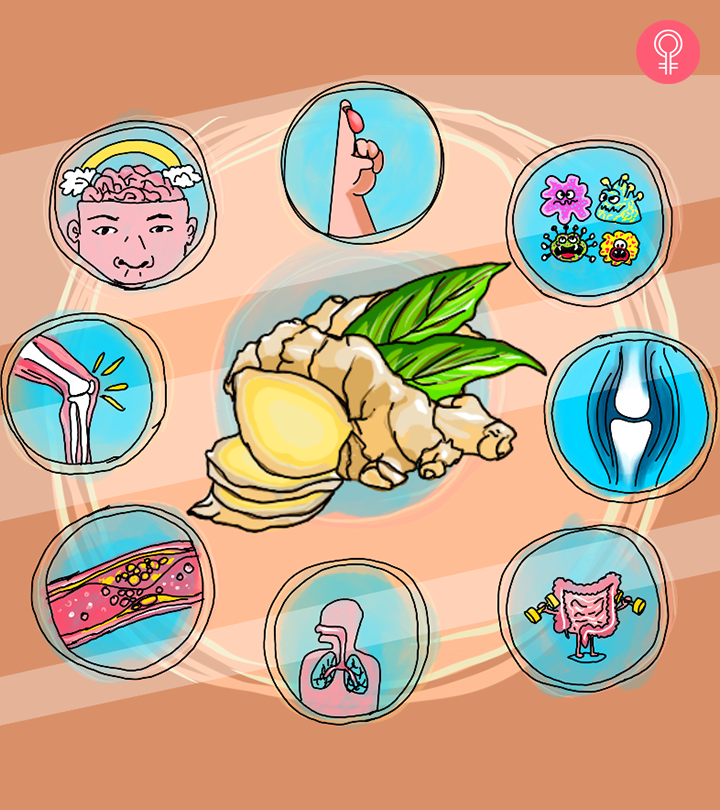
Image: StyleCraze Design Team
A few side effects of ginger may cause you to think twice before adding it to your diet. Ayurvedic practitioners have been using ginger (Zingiber officinale) to treat many conditions for centuries. Unfortunately, this herbal medicine has some detrimental effects as well.
Excess intake of ginger can cause heart issues, diarrhea, and increase the chances of miscarriage. In addition, people taking medicine for high blood pressure may wish to limit their consumption of ginger as it may interact with drugs and further lower blood pressure (1).
This article examines the side effects of ginger, its safety, recommended dosage, and any potential drug interactions. Read on.
 Know The Flip Side: Ginger
Know The Flip Side: GingerShort-Term Effects
Heartburn, upset stomach, and diarrhea.
Long-Term Effects
May lead to miscarriage and may excessively lower blood sugar levels.
Drug Interactions
It may interact with blood thinners, immunosuppressant drugs, and anti-diabetic medications.
When To See A Doctor
If you experience mouth irritation such as a tingling sensation or swelling, then consult a doctor immediately.
In This Article
Uses Of Ginger
Ginger has a rich history in traditional medicine and culinary science. It not only adds a delightful zing to your diet but also boasts of a range of health benefits.
One of the primary benefits of ginger lies in its ability to soothe digestive and abdominal discomforts, such as nausea, indigestion, and motion sickness (2). It is also revered for its anti-inflammatory properties. Individuals often use it as a natural remedy for pain relief, particularly in the case of arthritis (3). Furthermore, ginger has immune-boosting qualities that can help fend off common colds and flu (4).
However, excessive use of ginger can also result in some side effects. Learn more about them below.

Key Takeaways
- Ginger may cause heartburn and digestive distress in some people with excess consumption.
- Sometimes, excess intake may cause allergic reactions in some people, which may lead to skin inflammation and rashes.
- Hence, consult with your doctor regarding dosages and exceed the recommended dosage to avoid side effects.
9 Side Effects Of Ginger
1. May Cause Heartburn

Alicia Chacha Miller, MS, RD, LDN, mentions, “Ginger is usually well-tolerated, but having it on an empty stomach may cause mild digestive issues like nausea or heartburn for some people.” Research also suggests that ginger, when taken in higher doses (more than 4 grams per day), may cause mild heartburn. Other likely side effects of ginger include stomach discomfort, belching, acid reflux, and diarrhea (1).
In case you are using ginger as an alternative remedy and are experiencing heartburn as a side effect, you may want to try ginger in capsule form. Anecdotal evidence suggests this may have minimal side effects.
However, an American study reports heartburn in subjects who were given capsules of ginger powder dried in dark conditions at room temperature (5). Most often, consuming more than 5 grams of ginger per day may lead to side effects, such as heartburn, abdominal discomfort, and diarrhea (6). To avoid these issues, it is best to limit your intake to under 4 grams per day or stop using ginger altogether if symptoms persist (1).
 Quick Tip
Quick Tip2. May Cause Bleeding
Ginger may aggravate bleeding issues (7). This applies not only to the herb, but also to any ingredient present in the herb.
Certain experts believe that ginger could cause bleeding due to its anti-platelet (blood thinning) properties (8). This means that ginger may interfere with the normal clotting process, making it harder for blood to form clots, potentially increasing the risk of bleeding. Hence, people who take antiplatelet medications should consume ginger with caution to avoid an increased risk of bleeding (1).
Research further suggests that ginger may increase the anticoagulant effect of warfarin, a medication commonly used to prevent blood clots. This means that consuming ginger while taking warfarin may lead to excessive bleeding, as both work to thin the blood (1). Some also believe ginger can further increase the risk of bleeding when taken along with other herbs like cloves, garlic, ginseng, and red clover. However, more research is warranted in this aspect.
3. May Lead To Diarrhea
If taken in large quantities, ginger can cause diarrhea (1). Gingerols, the active ingredients in ginger, speed up the passage of food through the intestines and may cause diarrhea (9). While this was confirmed in animal studies, more studies in humans are warranted.
Another study found that taking ginger powder in moderation helped the stomach work faster by improving its contractions and speeding up how quickly it empties (10). Ginger may also help food move through the digestive system more quickly by interacting with serotonin receptors in the intestines, playing a role in gut movement. While this may be beneficial for relieving constipation or indigestion, excessive consumption may disrupt normal bowel patterns, leading to diarrhea.
Diarrhea can occur when the stool moves too rapidly through the gastrointestinal tract. Abnormal gastrointestinal motility and excessive fluid secretion of the gastrointestinal tract cause diarrhea (11).
4. May Upset Stomach

There is less research in this regard. Ginger stimulates the secretion of bile, which benefits digestion. (12). But if your stomach is empty, this may lead to excess gastric stimulation, causing digestive distress and an upset stomach. Also, high concentrations of bile have been linked to diarrhea (13).
The gingerol in ginger (which is similar to capsaicin, the active ingredient in many spices and chili peppers) is thought to irritate the stomach. This may leave you feeling unsettled (14), (15).
In fact, a review of five studies conducted on 593 patients to check for ginger’s efficacy in the treatment of osteoarthritis found an astonishing result. It was found that the participants who were given ginger were 2.33 times more likely to discontinue treatment than the ones who were given placebo despite experiencing pain reduction. This is because they experienced various forms of stomach upset or simply did not like the taste of ginger.
However, some evidence states that ginger could actually help treat an upset stomach (16). Hence, more studies are needed to understand how ginger may cause stomach upset.
5. Might Not Be Safe During Pregnancy

Though ginger can reduce nausea in pregnant women, it is important to note the herb’s dark side as well. According to certain experts, consuming ginger can increase the risk of miscarriage (17). It may not be dangerous if the dosage is below 1500 mg per day (2). Anything beyond this could be unsafe for pregnant women.
Taking ginger supplements in large doses can also cause miscarriage and other complications. Though ginger is safe when used in amounts found in food, it can cause problems during pregnancy. Excess intake of ginger during pregnancy may also lead to acid reflux and heartburn (2).
Ginger can increase the bleeding risk by decreasing the aggregation of platelets due to its anti-platelet (blood thinning) properties (8), (18). Hence, mothers who have lost a significant amount of blood during childbirth must abstain from ginger during the early days following childbirth.
6. May Cause Gas And Bloating

Ginger tea may cause certain mild digestive side effects. It most often impacts the upper digestive system and causes upper digestive gas, discomfort, and problems like acid reflux (1). Anecdotal evidence suggests that replacing ginger with supplements could be one solution to this. But make sure you talk to your doctor before using them.
According to the National Center for Complementary and Integrative Health, ginger may cause gas and abdominal discomfort, especially if taken in large doses (19).
Some believe the same could happen with ginger ale, the carbonated drink. The drink may aggravate bloating in certain individuals. Research suggests that carbonated drinks could worsen acid reflux (20). It also suggested these may cause a feeling of discomfort in your stomach, but this typically happens only if you drink more than 300 ml at once. However, more research is needed to strongly support these claims.
7. May Lower Blood Sugar Way Too Much
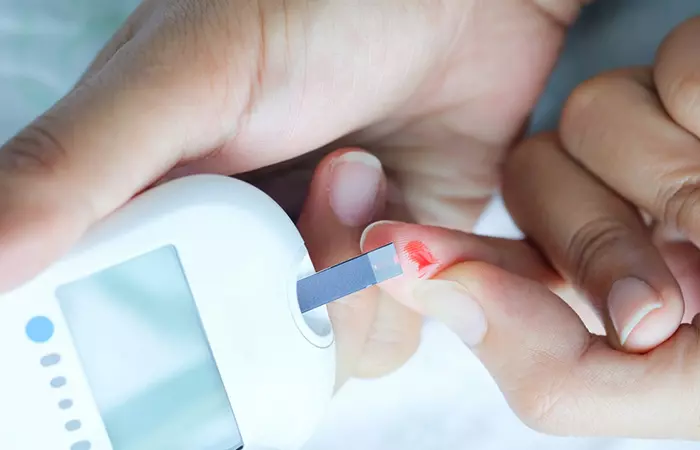
Ginger is usually known to aid diabetes treatment by lowering blood sugar levels. However, taking it along with diabetes medication may cause problems (21). Ginger may enhance the effects of the medication and cause hypoglycemia, a condition that leads to excessive low blood sugar levels (1).
8. May Cause Mouth Irritation
This is also called Oral Allergy Syndrome. Certain allergies occur when you consume certain foods. The symptoms are generally specific to the ears, skin, and mouth. One such allergy occurs when you consume ginger (not in all individuals, though), where your mouth starts to itch (19).
Mouth irritation might also lead to an unpleasant taste. Though switching to a ginger supplement might help, this is not always the case. Other related allergies include tingling and swelling of the mouth. However, limited research is available in this aspect, and we need further studies to understand why ginger may cause these allergies.
9. May Cause Skin And Eye Irritation
According to an Iranian study, the most common allergic reaction to ginger is a skin rash (22). Other allergies to ginger include itchy eyes, skin redness, and skin inflammation. However, more studies are needed to properly check the cause behind these side effects.
These are the major side effects of ginger. But there are certain other ill-effects of ginger (or of the different forms of ginger) that you need to be aware of.
Side Effects Of Eating Ginger In Other Forms
Ginger Root
Consuming ginger root in excess can cause stomach discomfort and a bad taste in the mouth. It might also cause nausea (7). Other potential side effects include allergic reactions, prolonged bleeding, heartburn, diarrhea, acid reflux, and arrhythmia (irregular heartbeat). Ginger root may also lower blood pressure and cause gallstone formation by increasing bile acid secretion (1).
Turmeric Ginger Tea
Anecdotal evidence suggests that turmeric ginger tea may cause complications in individuals with a history of kidney stones or gallstones. The tea may aggravate the condition by increasing the levels of uric acid in the blood. It may also cause stomach cramping and bloating. However, there is less research in this regard. Hence, consult your doctor.
Lemon Ginger Tea
Anecdotal evidence suggests that the only side effect of this tea is frequent urination. Excess consumption of lemon ginger tea (or any beverage for that matter) may cause frequent urination. Hence, limit the intake of this beverage.
Ginger Water
This is also known as ginger tea in certain regions. The side effects are similar to that of ginger, which include heartburn, stomach ache, gas, and a burning sensation in the mouth (1).
Another side effect of ginger water (the tea) is that it may disturb your sleep. This means that it can keep you up for a long time at night if you consume it before hitting the bed. However, limited information is available to support this point.
A case study of a 43-year-old man suggests ginger tea may also cause urinary issues (23). Here is what you should know about it:
- The man suffered from problems like a weak stream, pain, and discomfort for four years, along with chest heaviness and palpitations.
- Despite multiple medical visits and treatments with antibiotics, his symptoms persisted, and tests showed no abnormalities in his urinary system or other potential causes.
- After further investigation, it was revealed that he had been self-prescribing ginger tea for 15 years to treat knee pain.
- Upon stopping the ginger, his symptoms gradually improved, disappearing completely after eight weeks, with no relapse during a six-month follow-up, suggesting the ginger was the cause of his issues.
Ginger Ale
Is ginger ale good for you or does it have any side effects? Though ginger ale contains ginger, it is a sweetened carbonated drink and, hence, comes with less benefits. The high levels of sugar may contribute to weight gain and increased risk of diabetes if consumed excessively (24). Further, carbonated drinks may lead to bloating and stomach discomfort if you drink more than 300 ml at once (20). Further, if you take blood pressure medications, blood thinners, or diabetes drugs, you should be cautious about the ginger content in the drink, as it may interact with certain medications (1).
Ginger is also available in the form of capsules these days. But are they safe? Find out in the next section.
Side Effects Of Ginger Capsules
The major problem with ginger supplements is their tendency to interact with prescription medications. Most of their side effects are similar to that of raw ginger.
Stephanie Wells, MS, RD, LD, ACSM-CPT, says, “For most people, ginger is safe to eat raw when eaten in amounts typically used in food and recipes. Eating more than 5 grams of raw ginger or taking ginger supplements may increase your chances of digestive issues, such as heartburn, diarrhea, and an upset stomach.”
Alicia adds, “The intensity of ginger’s flavor can also be off-putting, though it’s available in a variety of forms like teas, powders, chews, capsules, and the raw root, so it’s possible to find an option that works best for you. While I don’t often suggest using ginger supplements, small doses may be more manageable for those who are sensitive.”
Ginger was found to have anti-diabetic properties. If taken along with anti-diabetes medications, ginger (or its capsules) can lower blood sugar levels way too much (25).
Ginger has been closely related to turmeric (also called yellow ginger) for its therapeutic properties. However, turmeric too may have side effects, if taken in excess amounts. Turmeric may interact with certain medications. These include cardiovascular drugs, antibiotics, anticoagulantsi Drugs that work to stop the formation of blood clots and reduce the risk of severe illnesses, like heart attacks and strokes. , chemotherapyi A treatment method to destroy cancer cells in the body, keep them from progressing, and prevent any further tumor growth. drugs, and antihistamines (26). Though research is limited to conclude the medical interactions of yellow ginger, it is important to exercise caution.
Possible Interactions
Stephanie says, “Ginger can interact with some medications, particularly blood thinners that slow blood clotting and some blood pressure medications. It may also interfere with diabetes medications that lower blood sugar, medications that suppress the immune system, and certain antibiotics. If you take any of these medications, speak with your doctor before adding ginger or ginger supplements to your diet.”
Ginger also interacts with other drugs like phenprocoumon (a drug used in Europe to slow blood clotting) and warfarin (another drug to slow down blood clotting). Consuming ginger along with these medications might increase your risk of bruising and bleeding (7). So, if you are wondering when not to take ginger, try avoiding it if you consume any of these medications.
Recommended Dosage
Dosages of around 1500 mg per day were found to treat nausea (22). Going beyond this dosage may cause adverse effects, though information is unclear. Hence, it is important to consult a doctor.
If it is ginger root, the following dosages may be ideal (these are just guidelines; for ideal values, please consult your doctor):
- For children between the ages of 2 and 6 years, not more than 2 mg of ginger root in a day.
- For adults, not more than 4 grams of ginger root in a day (1).
- For pregnant women, not more than 1 gram of ginger root in a day.
If it is ginger tea, anecdotal evidence suggests adults should not consume more than 2-3 cups a day. The guidelines mentioned above also apply to ginger supplements. However, it is best to consult a doctor to determine the dosage and stick to it.
 Trivia
TriviaWhile ginger can sometimes cause side effects, especially when consumed in large amounts, this should not stop you from consuming it. Instead, you can follow the simple tips mentioned in the next section to minimize the side effects of ginger.
Tips To Minimize The Side Effects Of Ginger
Here are a few simple tips that will help you minimize the side effects of ginger:
- If you are consuming ginger for the first time, gradually introduce it into your diet to see how your body responds. Start off by adding small amounts of ginger to your food. Check how your body reacts to it. If you notice any side effects, avoid using it.
- Do not consume more than 4 grams of ginger a day to avoid issues like heartburn, diarrhea, or bloating. Stick to moderate quantities, such as 1-2 grams per day, unless advised otherwise by a healthcare professional.
- If you are prone to allergies, be cautious when trying ginger for the first time. Keep an eye out for symptoms like rash, swelling, or difficulty breathing. Visit a doctor immediately if these occur. Also, stop consuming ginger altogether. You may try other herbs and spices like garlic, pepper, and cinnamon instead.
- If you are pregnant or on any medication, check with your doctor before increasing ginger consumption.
- When using ginger in cooking, balance it with other ingredients to reduce irritation in the digestive tract.
Infographic: Major Side Effects Of Ginger To Watch Out For
Ginger is a popular underground spice that everyone is raving about. Whether in savory dishes, essential oils, herbal teas, or capsules and supplements – you can’t get enough of it. However, it is important to note that overconsumption can lead to adverse conditions.
Check out the infographic below to learn some of the major side effects that you can expect if you consume ginger in excess.
Some thing wrong with infographic shortcode. please verify shortcode syntax
Ginger is an aromatic spice that is also used in traditional medicine to treat nausea, vomiting, headache, dizziness, menstrual irregularities and to combat kidney damage and liver damage. Despite the many benefits of ginger powder you may have heard about, excess ginger can cause adverse effects. The side effects of ginger range from diarrhea and abdominal discomfort to hypotensioni A condition where there is a sudden drop in blood pressure due to insufficient blood flow to the brain. . It may cause heartburn or bloating in moderate cases and aggravate bleeding problems in severe cases. In addition, ginger may cause eye, mouth, and skin irritation. It can even trigger allergic reactions or interfere with certain medications. Limiting or avoiding its consumption can help avoid these complications.
Frequently Asked Questions
Does ginger increase testosterone?
Stephanie Wells says, “Ginger has been shown in research studies to increase testosterone levels, but almost all of these studies have been in rodents.” She adds, “Rodent studies are used to test scientific hypotheses, but we do not always see the same results in humans that we see in rodents. Since the effects of ginger on testosterone haven’t been tested in humans, we can’t say for sure whether ginger is helpful for raising testosterone levels.”
What are the warnings and precautions for ginger?
Jesse Feder, Clinical Dietitian at the Memorial Regional Hospital, says, “Ginger is generally safe to consume. You may experience heartburn, indigestion, and stomach pain if taken on an empty stomach. Additionally, ginger may interact with certain medications. It is advised to consult with your doctor if you have any medical questions.”
Can ginger cause heart problems?
It is believed that excess ginger intake can lead to irregularities in the heartbeat. However, direct research is lacking in this area. As ginger can interact with certain medications, it is wise to consult your doctor before taking ginger with medications pertaining to heart health (including anti-hypertensive medicationsi Medications that work to relax the blood vessels, lower blood pressure, and reduce the risk of heart problems. ).
Can ginger increase blood pressure?
No. Eating too much ginger while you are on blood pressure-lowering medication may lead to lowering blood pressure way too much. However, research is limited in this area.
Does ginger make you poop?
Yes, anecdotal evidence suggests that consuming ginger in moderation may help you poop and relieve constipation. It may also help you treat bloating and intestinal gas. However, relevant studies are needed to support these claims.
Illustration: Side Effects Of Ginger You Must Know About

Image: Stable Diffusion/StyleCraze Design Team
Are you eating ginger daily? Wondering how much is safe? Check out the video below to learn about the side effects of consuming too much ginger.
References
Articles on StyleCraze are backed by verified information from peer-reviewed and academic research papers, reputed organizations, research institutions, and medical associations to ensure accuracy and relevance. Read our editorial policy to learn more.
- Ginger root, US National Library of Medicine, National Institutes of Health.
https://www.ncbi.nlm.nih.gov/books/NBK565886/ - Ginger in gastrointestinal disorders: A systematic review of clinical trials Food Science & Nutrition US National Library of Medicine National Institutes of Health.
https://www.ncbi.nlm.nih.gov/pmc/articles/PMC6341159/ - Effect of Ginger on Inflammatory Diseases , Molecules, US National Library of Medicine, National Institutes of Health.
https://www.ncbi.nlm.nih.gov/pmc/articles/PMC9654013/ - Dried Ginger Extract Restores the T Helper Type 1/T Helper Type 2 Balance and Antibody Production in Cyclophosphamide-Induced Immunocompromised Mice after Flu Vaccination Nutrients US National Library of Medicine National Institutes of Health.
https://www.ncbi.nlm.nih.gov/pmc/articles/PMC9102251/ - Efficacy of Oral Ginger (Zingiber officinale) for Dysmenorrhea: A Systematic Review and Meta-Analysis Evidence-Based Complementary and Alternative Medicine US National Library of Medicine National Institutes of Health.
https://www.ncbi.nlm.nih.gov/pmc/articles/PMC4871956/ - Integrative Treatment of Reflux and Functional Dyspepsia in Children Children US National Library of Medicine National Institutes of Health.
https://www.ncbi.nlm.nih.gov/pmc/articles/PMC4928719/ - The Amazing and Mighty Ginger Herbal Medicine: Biomolecular and Clinical Aspects US National Library of Medicine National Institutes of Health.
https://www.ncbi.nlm.nih.gov/books/NBK92775/ - Ginger Handbook of Herbs and Spices ScienceDirect.
https://www.sciencedirect.com/topics/agricultural-and-biological-sciences/ginger - Effect of gingerol on colonic motility via inhibition of calcium channel currents in rats World Journal of Gastroenterology US National Library of Medicine National Institutes of Health.
https://www.ncbi.nlm.nih.gov/pmc/articles/PMC4690175/ - The Effect of Ginger Supplementation on the Improvement of Dyspeptic Symptoms in Patients With Functional Dyspepsia US National Library of Medicine National Institutes of Health.
https://pmc.ncbi.nlm.nih.gov/articles/PMC10525921/ - Approach to the Patient with Diarrhea and Malabsorption US National Library of Medicine National Institutes of Health.
https://pmc.ncbi.nlm.nih.gov/articles/PMC7152045/ - The Effects of Ginger on Gallbladder Motility in Healthy Male Humans US National Library of Medicine National Institutes of Health.
https://pmc.ncbi.nlm.nih.gov/articles/PMC3228982/ - Bile Acid Receptors and Gastrointestinal Functions US National Library of Medicine National Institutes of Health.
https://pmc.ncbi.nlm.nih.gov/articles/PMC7197881/ - Revisiting the therapeutic potential of gingerols against different pharmacological activities US National Library of Medicine National Institutes of Health.
https://pmc.ncbi.nlm.nih.gov/articles/PMC9803890/ - Capsaicin the Spicy Ingredient of Chili Peppers: Effects on Gastrointestinal Tract and Composition of Gut Microbiota at Various Dosages US National Library of Medicine National Institutes of Health.
https://pmc.ncbi.nlm.nih.gov/articles/PMC8909049/ - Ginger and Its Constituents: Role in Prevention and Treatment of Gastrointestinal Cancer Gastroenterology Research and Practice US National Library of Medicine National Institutes of Health.
https://www.ncbi.nlm.nih.gov/pmc/articles/PMC4369959/ - Which potential harms and benefits of using ginger in the management of nausea and vomiting of pregnancy should be addressed? a consensual study among pregnant women and gynecologists BMC Complementary and Alternative Medicine US National Library of Medicine National Institutes of Health.
https://www.ncbi.nlm.nih.gov/pmc/articles/PMC5385053/ - A systematic review and meta-analysis of the effect and safety of ginger in the treatment of pregnancy-associated nausea and vomiting Nutrition Journal US National Library of Medicine National Institutes of Health.
https://www.ncbi.nlm.nih.gov/pmc/articles/PMC3995184/ - Ginger National Center for Complementary and Integrative Health.
https://www.nccih.nih.gov/health/ginger - Carbonated beverages and gastrointestinal system: between myth and reality US National Library of Medicine National Institutes of Health.
https://pubmed.ncbi.nlm.nih.gov/19502016/ - The Effects of Ginger on Fasting Blood Sugar Hemoglobin A1c and Lipid Profiles in Patients with Type 2 Diabetes International Journal of Endocrinology Metabolism US National Library of Medicine National Institutes of Health.
https://www.ncbi.nlm.nih.gov/pmc/articles/PMC5750786/ - Subacute thyroiditis following ginger (Zingiber officinale) consumption International Journal of Ayurveda Research US National Library of Medicine National Institutes of Health.
https://www.ncbi.nlm.nih.gov/pmc/articles/PMC2876930/ - Chronic Dysuria Following Ginger (Zingiber officinale) Use: A Case Report US National Library of Medicine National Institutes of Health.
https://pmc.ncbi.nlm.nih.gov/articles/PMC8343718/ - Relationship between Added Sugars Consumption and Chronic Disease Risk Factors: Current Understanding US National Library of Medicine National Institutes of Health.
https://pmc.ncbi.nlm.nih.gov/articles/PMC5133084/ - Interactions between antidiabetic drugs and herbs: an overview of mechanisms of action and clinical implications Diabetology and Metabolic Syndrome US National Library of Medicine National Institutes of Health.
https://www.ncbi.nlm.nih.gov/pmc/articles/PMC5527439/ - Pharmacokinetic Interactions of Curcuminoids With Conventional Drugs: A Review Journal of Ethnopharmacology US National Library of Medicine National Institutes of Health.
https://pubmed.ncbi.nlm.nih.gov/28734960/
Read full bio of Merlin Annie Raj
- Alicia Chacha Miller is a Registered Dietitian specializing in maternal and pediatric nutrition. She obtained her Master's degree in Nutrition Sciences from the University of Southern California. Her work is focused on bridging the gap in health disparities between BIPOC (Black, Indigenous, and People of Color) and other races by making nutrition education available, accessible, and easy to understand. She is the founder of The Cardamom Nutrition, where evidence-based practice, diversity, inclusion, cultural competence, and compassion all collide.
 Alicia Chacha Miller is a Registered Dietitian specializing in maternal and pediatric nutrition. She obtained her Master's degree in Nutrition Sciences from the University of Southern California. Her work is focused on bridging the gap in health disparities between BIPOC (Black, Indigenous, and People of Color) and other races by making nutrition education available, accessible, and easy to understand. She is the founder of The Cardamom Nutrition, where evidence-based practice, diversity, inclusion, cultural competence, and compassion all collide.
Alicia Chacha Miller is a Registered Dietitian specializing in maternal and pediatric nutrition. She obtained her Master's degree in Nutrition Sciences from the University of Southern California. Her work is focused on bridging the gap in health disparities between BIPOC (Black, Indigenous, and People of Color) and other races by making nutrition education available, accessible, and easy to understand. She is the founder of The Cardamom Nutrition, where evidence-based practice, diversity, inclusion, cultural competence, and compassion all collide. - Stephanie Wells, MS, RD, LD, ACSM-CPT, is a registered dietitian with over 8 years of experience. She specializes in vegan nutrition and aims to help her clients optimize their nutrition and live healthy, sustainable lifestyles. She graduated from The University of Texas Medical Branch and offers telehealth nutrition counseling and consulting services.
 Stephanie Wells, MS, RD, LD, ACSM-CPT, is a registered dietitian with over 8 years of experience. She specializes in vegan nutrition and aims to help her clients optimize their nutrition and live healthy, sustainable lifestyles. She graduated from The University of Texas Medical Branch and offers telehealth nutrition counseling and consulting services.
Stephanie Wells, MS, RD, LD, ACSM-CPT, is a registered dietitian with over 8 years of experience. She specializes in vegan nutrition and aims to help her clients optimize their nutrition and live healthy, sustainable lifestyles. She graduated from The University of Texas Medical Branch and offers telehealth nutrition counseling and consulting services. - Jesse Feder, RDN/LDN, is a Clinical Dietitian at the Memorial Regional Hospital. He is also a certified by the American College of Sports Medicine as a personal trainer (ACSM-CPT) and the National Strength and Conditioning Association as a Certified Strength and Conditioning Specialist (NSCA-CSCS).
 Jesse Feder, RDN/LDN, is a Clinical Dietitian at the Memorial Regional Hospital. He is also a certified by the American College of Sports Medicine as a personal trainer (ACSM-CPT) and the National Strength and Conditioning Association as a Certified Strength and Conditioning Specialist (NSCA-CSCS).
Jesse Feder, RDN/LDN, is a Clinical Dietitian at the Memorial Regional Hospital. He is also a certified by the American College of Sports Medicine as a personal trainer (ACSM-CPT) and the National Strength and Conditioning Association as a Certified Strength and Conditioning Specialist (NSCA-CSCS).
Read full bio of Ravi Teja Tadimalla
Read full bio of Arshiya Syeda
Read full bio of Aparna Mallampalli








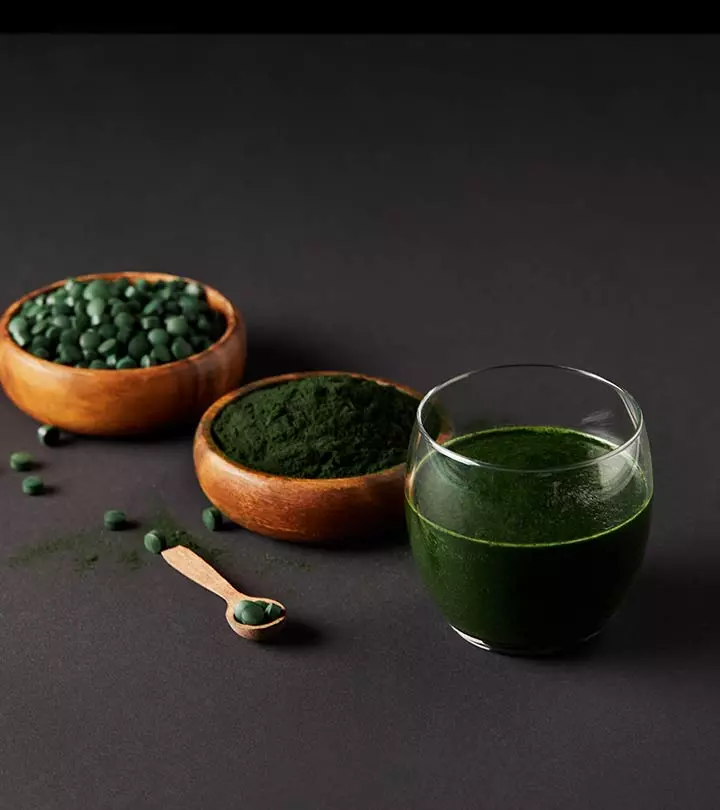




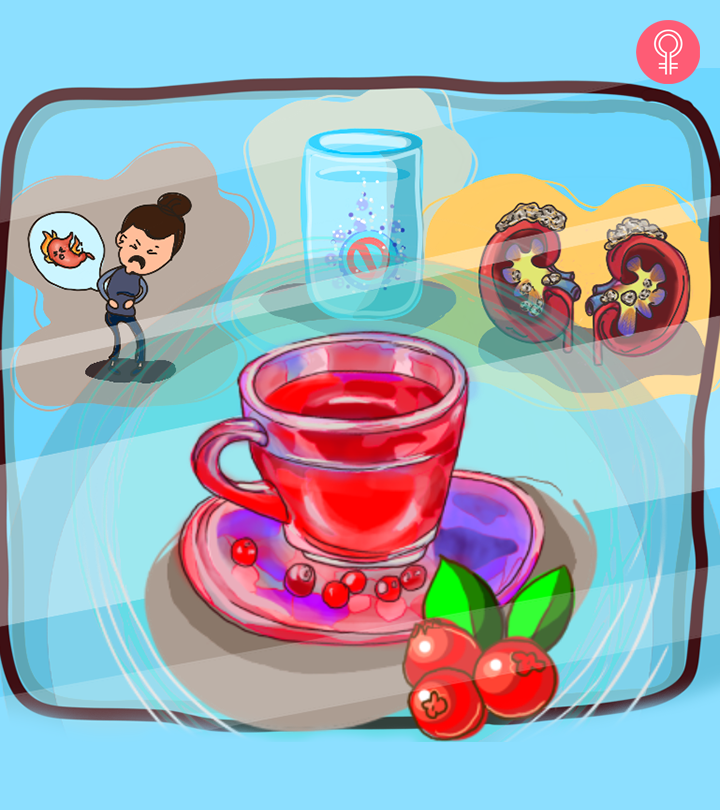



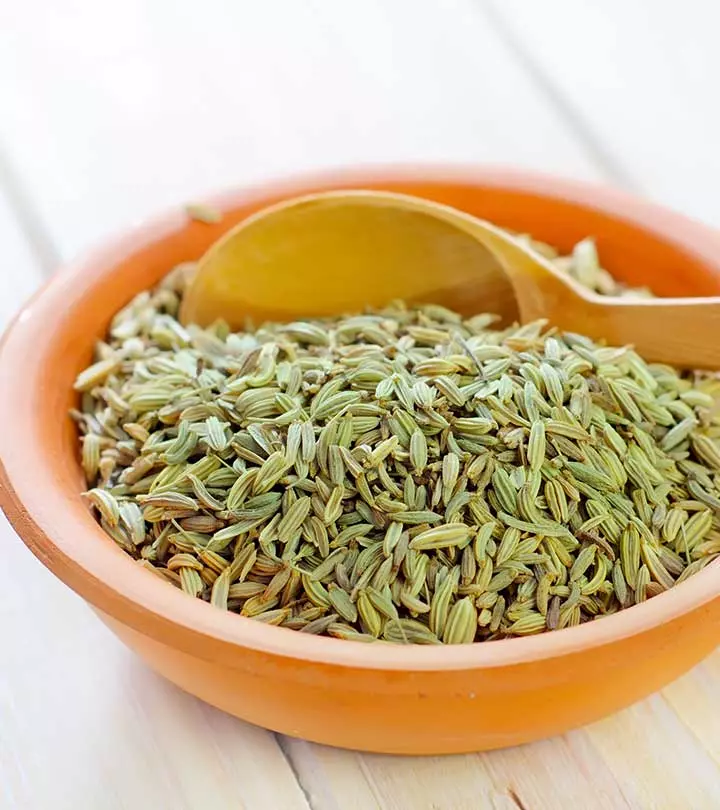


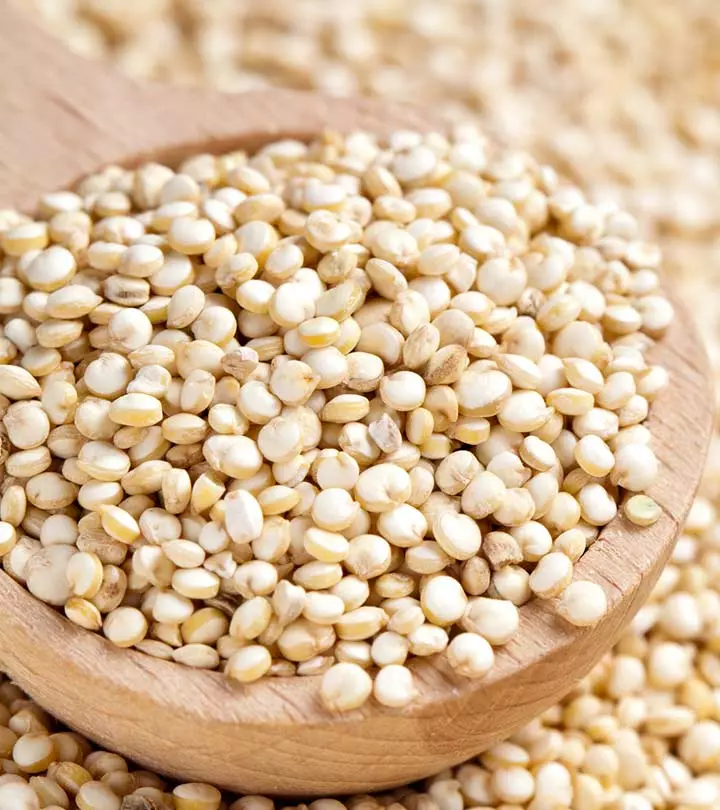







Community Experiences
Join the conversation and become a part of our empowering community! Share your stories, experiences, and insights to connect with other beauty, lifestyle, and health enthusiasts.